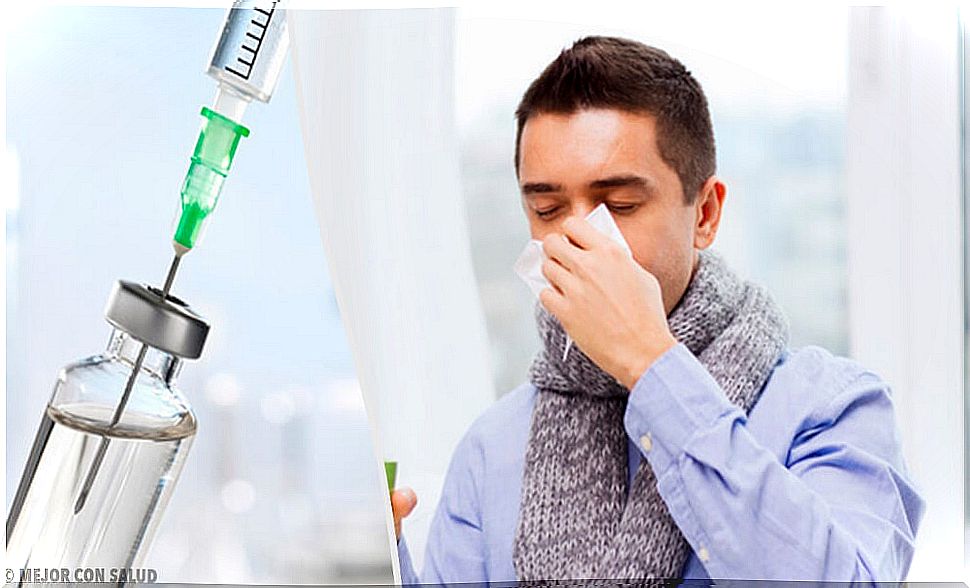Flu Treatment
All about the flu. What is the flu, symptoms, what aspects to consider, what to avoid, ways of prevention and treatment.

The flu is defined as a viral infection that is easily transmitted from one person to another through droplets and tiny particles that come out when coughing or sneezing. For this reason, it is considered one of the most frequent seasonal epidemics in the world. The infection has repercussions in the nose, throat, bronchi and, in some cases, the lungs.
The flu lasts for about a week, as long as treatment is followed to relieve symptoms. In most cases it is enough to follow some care, which does not necessarily involve the use of drugs. Sometimes it can lead to pneumonia. However, that depends on the severity of the case and the reaction of the patient.
In any case, it is always advisable to go to the doctor to assess the situation.
Also read Treating pneumonia in children

What are the symptoms of the flu?
Regardless of the type of flu, most have the following symptoms:
- Cough.
- Sneezing
- Tearing
- Tiredness.
- Muscle pain.
- Headache.
- Runny nose.
- Fever greater than 38ºC.
- Swelling in the throat.
There are people who are more vulnerable to symptoms. In particular, those who suffer from chronic diseases, have low defenses, pregnant women or are obese. Children and older adults generally get the flu most often.
How is the flu spread?

In reality, anyone is at risk of getting the flu, since it spreads easily. Its transmission occurs from the moment someone who has the virus coughs or sneezes the infectious particles. These are dispersed in the air and other people inspire them without realizing it.
There are cases in which the virus is transmitted through infected hands. Therefore, emphasis is placed on regular washing, mouth protection, and the use of tissues when sneezing.
Flu treatment
Treatment of symptoms
Most people with the flu will be mildly ill and will not need medical care or antiviral medications. If you have symptoms of the flu, in most cases you should stay home and limit contact with other people as much as possible to avoid spreading them.
To treat the symptoms, the following are usually prescribed:
- Analgesics. The most used are acetisalicylic acid, paracetamol, ibuprofen and salicylamide. In particular, they help fight pain.
- Decongestants. They reduce the nasal mucosa. They can be given as drops, gel or nebulizer.
- Antihistamines. They are indicated for nasal congestion, lacrimation and sneezing.
- Expectorants. These contain substances called mucolytics that facilitate the expulsion of mucus.
It is essential to keep in mind that antibiotics do not fight viruses. Therefore, they are not indicated for influenza or other diseases caused by viruses. Its prescription therefore constitutes an exclusive responsibility of the doctor, when the patient’s condition requires it.
Antiviral treatment
If the person has symptoms of influenza and is in a high risk group or is very ill, or hospitalized, they should contact their doctor. You will likely need an antiviral medicine to treat the flu :
- Antiviral drugs can treat the flu
- They are prescription drugs (pills, liquids, intravenous solution, inhalation powders) and are not sold without a prescription.
- Antivirals can make the disease milder and last shorter. They can also prevent complications from the flu, such as pneumonia
- It is very important to use antiviral drugs during the early stage of treatment against influenza only if the doctor recommends it for some characteristic of the patient, which puts him at greater risk. Studies show that antiviral medicines work best when you start taking them within 2 days of getting sick.
- You should follow your doctor’s instructions regarding taking these medications.
However, most healthy people who get the flu do not need to be treated with antiviral drugs.
Also read 7 best fruits to deal with the flu and colds
Prevention
The most effective way to prevent getting sick with the flu is through vaccination. In fact, it has been used for more than 6 decades with excellent results. Flu vaccination is even recommended as prevention in apparently healthy people.
For its part, the World Health Organization recommends the vaccine to:
- Pregnant women.
- Health workers.
- Children 6 months to 5 years.
- People over 65 years of age.
- People with chronic conditions.
Like all viral illnesses, the flu is constantly changing. For this reason, the WHO Global Influenza Surveillance and Response System periodically monitors the effects of the vaccine. In addition, it changes its composition if necessary according to the types of influenza viruses that prevail each year, in each country.
recommendations

In case the person does not have a chronic problem, they can follow the following indications to cure the flu:
- Get enough rest.
- Avoid sharing utensils.
- Increase your fluid intake.
- Blow your nose several times a day.
- Do not come into contact with other people.
- Cover your nose and mouth when sneezing or coughing.
- Wash your hands very well frequently.
- Avoid the consumption of alcoholic beverages and tobacco.
- Adults can consume some over-the-counter medicine.
Most treatments are dispensed without a prescription and it is the responsibility of the pharmacist to recommend one or the other, depending on the patient’s symptoms. But, fundamentally, inform about the instructions and warnings of the drug. That is, the dosage, duration of treatment, contraindications, side effects and interactions. Anyway, it is always advisable to go to the doctor.









